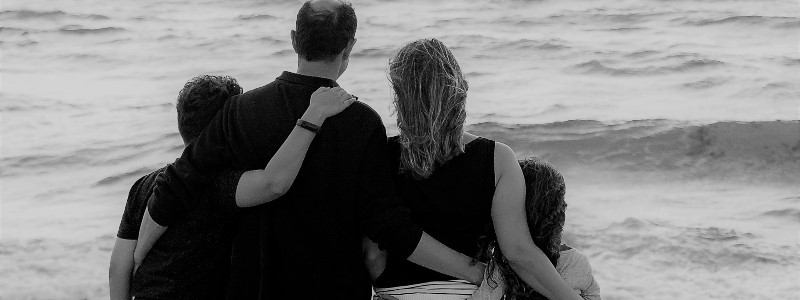Family backgrounds and values
From our earliest times, we absorb the emotional systems of our family environment. As we make our way in the world we take our families with us, internalised and manifesting consciously and unconsciously in many, if not all, aspects of our lives.
While the societal and cultural context of the family is a key aspect in determining some dominant aspects of the family system, in this piece I am more concerned with the unique emotional variations of individual families. Thinking about our own families of origin, for e.g., we might ask ourselves – what emotional values dominated? What feelings were allowed and what feelings were not allowed?
As we enter adolescence, and then adulthood, we become more able to step outside our original family systems and compare them with those of others. This can help us also see how our own family culture has impacted and shaped us as individuals.
These insights can lead to some deliberate rejections of family values and behaviour. There are many decisions, significant and small, many make as adults to try and separate and ‘do it differently’. What is more difficult to disentangle from, however, are those parts of the system which have been unconsciously assimilated and which we therefore can’t recognise in ourselves or perhaps even in our family. This unconscious maintenance of our family culture is at its most complicated and hidden in our emotional life and is very likely to surface in our relationships.
The family system and the psychotherapy group system
When someone joins a psychotherapy group, they unconsciously expect the group (as well as the therapist) to behave like their family. A little like the stereotyped ‘Brit abroad’, they are expecting things to be like it is ‘back home’ even though they have made the journey initially for something different. Because their own family culture is what they know, the individual feels in some way that they’re going to be safer if the group behaves in this expected way.
In these scenarios two things are likely to happen.
Firstly, the group will, at times, unconsciously repeat for the individual experiences that replay the family culture.
In psychotherapy, past experiences will always resurface in some shape or other. This is an opportunity for the individual to tackle difficulties head on and ‘in the moment’. While the group will inevitably repeat some aspects of the family system, it is not the family and as a therapeutic system it will allow these experiences to be explored. Sometimes, this can happen quickly but often it is an ongoing process over time.
Secondly, the group and therapist will, also at times, confound the unconscious expectations that the individual’s family culture will be recreated.
As I said above, the therapy group develops its own culture and system based on therapeutic values rather than the old family values. This new group system will eventually override or at least reshape the old system of the individual’s family.
This is quite explicit when group members expect a shaming or critical response when they reveal or expose some thought, feeling or behaviour that would not fit with their own family values – consciously or unconsciously. It can be a moving and an important experience when they’re met with a typical therapy group response of acceptance, empathy and understanding.
In addition to those more obvious moments, as the individual becomes immersed in the group culture, they allow this new – more benign, and therapeutic – system to replace the old. This deeper process takes place in a complex way over time.
Summary
We are all shaped by our family cultures. Problematic aspects of our emotional lives and relationships can often be traced back to our family experiences and the systems we have internalised. Group therapy offers an opportunity to engage with these internalised parts of ourselves and through the group therapeutic process separate from limiting or harmful family assumptions and values.
To enquire about psychotherapy sessions with Claire Barnes, please contact her here, or to view our full clinical team, please click here.
Claire Barnes is an experienced UKCP registered psychotherapist and group analyst offering psychodynamic counselling and psychotherapy to individuals and groups at our Hove practice. She offers a free telephone consultation for anyone interested in exploring further the possibility of joining a therapy group.
Further reading by Claire Barnes –
Is a Therapy Group Right for Me? Am I Right for a Therapy Group?
What happens in Therapy Groups? The role of the Therapist
What happens in Group Therapy: Mirroring
What is it like being in a Psychotherapy Group? Case study – Joe

Leave a Reply